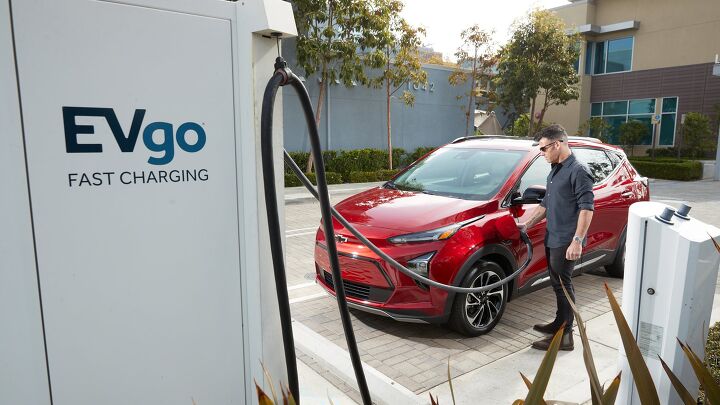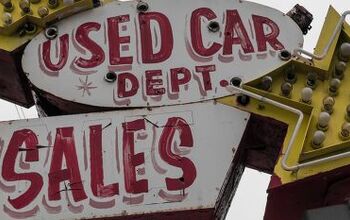EV Supply Chains May Be Dirtier Than You Think

Most of us know that even the most efficient, long-range EVs generate emissions during the raw materials extraction and production phases, and that’s before we count the logistics required to move everything around the world a few times in the process. The Washington Post recently reported on some of the “dirty parts” of EV manufacturing, and it paints a picture of challenges ahead as more people look to make the shift to electrics.
EV batteries weigh hundreds of pounds and require several minerals and other materials that have to be mined. Many of the extraction locations are in poor parts of the world where the environmental safety and protections aren’t as strong as they are here. Materials like manganese mined in South Africa can have significant negative impacts on local communities and the people doing the mining. Workers in some mines report memory loss and slurred speech related to their work.
These challenges are likely going to get worse as demand for raw materials increases. The reporting estimated that demand for lithium will climb 40 times over by 2040, while other minerals will see astronomical growth of 20 times or more over that period. New battery chemistries and designs may help alleviate some of that pressure, but it will be some time before that happens, and the damage will have been done.
As The Washington Post points out, the U.S. is working to expand its supply chain through legislation like the Inflation Reduction Act and other efforts. That could raise EV prices initially, as much of the existing sourcing and refining infrastructure lies in China, and upcoming changes to the tax credit rules will make vehicles with Chinese-sourced or refined materials ineligible.
[Image: Chevrolet]
Become a TTAC insider. Get the latest news, features, TTAC takes, and everything else that gets to the truth about cars first by subscribing to our newsletter.

Chris grew up in, under, and around cars, but took the long way around to becoming an automotive writer. After a career in technology consulting and a trip through business school, Chris began writing about the automotive industry as a way to reconnect with his passion and get behind the wheel of a new car every week. He focuses on taking complex industry stories and making them digestible by any reader. Just don’t expect him to stay away from high-mileage Porsches.
More by Chris Teague
Latest Car Reviews
Read moreLatest Product Reviews
Read moreRecent Comments
- Varezhka The biggest underlying issue of Mitsubishi Motors was that for most of its history the commercial vehicles division was where all the profit was being made, subsidizing the passenger vehicle division losses. Just like Isuzu.And because it was a runt of a giant conglomerate who mainly operated B2G and B2B, it never got the attention it needed to really succeed. So when Daimler came in early 2000s and took away the money making Mitsubishi-Fuso commercial division, it was screwed.Right now it's living off of its legacy user base in SE Asia, while its new parent Nissan is sucking away at its remaining engineering expertise in EV and kei cars. I'd love to see the upcoming US market Delica, so crossing fingers they will last that long.
- ToolGuy A deep-dive of the TTAC Podcast Archives gleans some valuable insight here.
- Tassos I heard the same clueless, bigoted BULLSHEET about the Chinese brands, 40 years ago about the Japanese Brands, and more recently about the Koreans.If the Japanese and the Koreans have succeeded in the US market, at the expense of losers such as Fiat, Alfa, Peugeot, and the Domestics,there is ZERO DOUBT in my mind, that if the Chinese want to succeed here, THEY WILL. No matter what one or two bigots do about it.PS try to distinguish between the hard working CHINESE PEOPLE and their GOVERNMENT once in your miserable lives.
- 28-Cars-Later I guess Santa showed up with bales of cash for Mitsu this past Christmas.
- Lou_BC I was looking at an extended warranty for my truck. The F&I guy was trying to sell me on the idea by telling me how his wife's Cadillac had 2 infotainment failures costing $4,600 dollars each and how it was very common in all of their products. These idiots can't build a reliable vehicle and they want me to trust them with the vehicle "taking over" for me.


































Comments
Join the conversation
Masterbaiter: that comment makes no sense. Oil companies are out to maximize profits. if they can get cheap oil somewhere (gov't lands) then that just means they can make so much more selling it at going rates.
Bullnuke: There is cheap crude. Crude that takes almost no effort or cost to pump vs crude that is extremely expensive to extract.
Back in the '60's and 70's they would have thought you were nuts to try to extract oil from shale or tar sands.